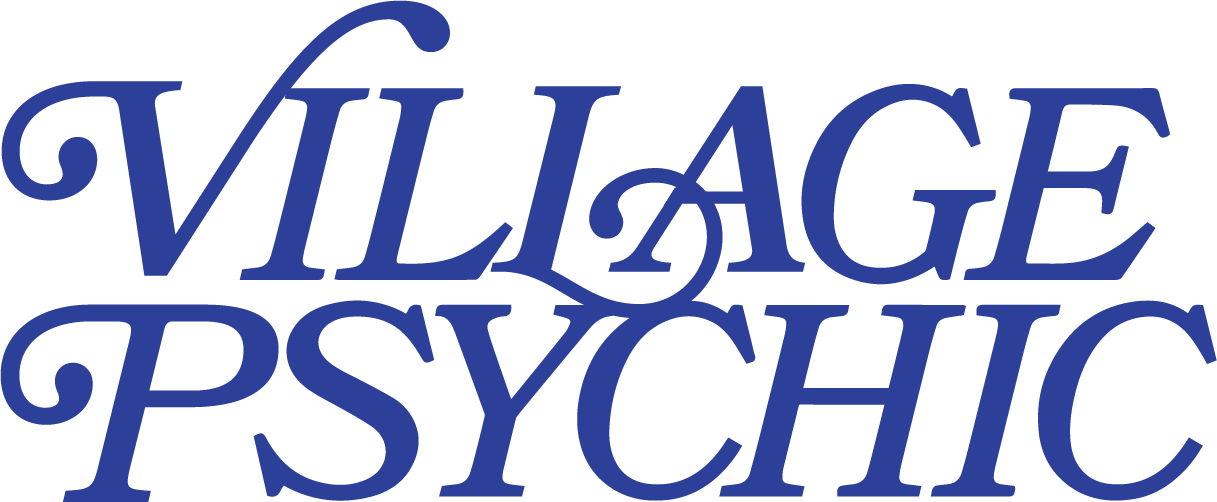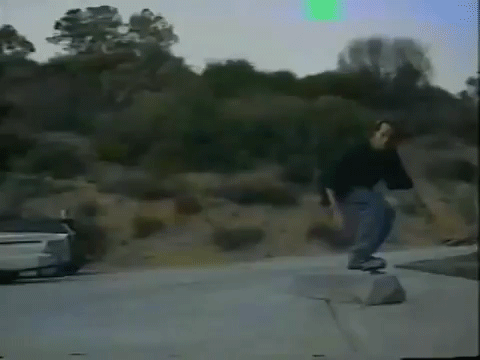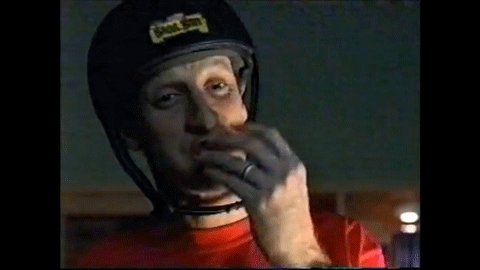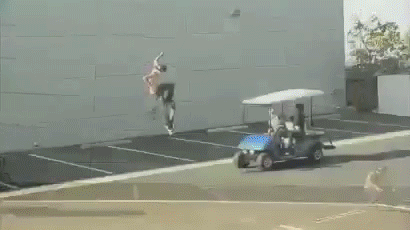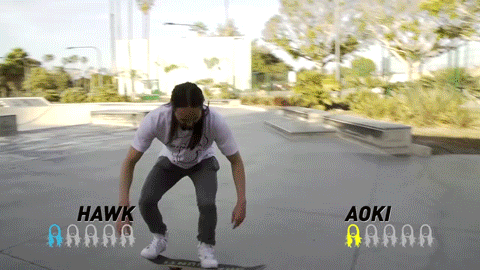The Rules Of Skateboarding #11: Tony Hawk
Illustration by Cosme
Between the video games, THE 900, and a career spanning decades, Tony Hawk should not need any sort of introduction.
Ian Browning talked to Tony for our latest Rules of Skateboarding installment and got his take on large scale sponsors - what the line is and where to draw it.
Between gummy vitamins and mini cooper, you’ve probably had the most diverse sponsor profile in skateboarding. Coming from a time when skaters were lucky to make enough money to take a Motel 6 tour, what is the endorsement deal that you’ve had that has seemed the craziest?
McDonalds. For sure. I ate McDonalds growing up—I never really quit eating McDonalds to this day. People can say what they want about morality or selling out. That’s genuinely a food that I enjoy.
And they’re such a huge corporation, for them to even acknowledge skateboarding in a positive way was crazy to me. I made sure that through my endorsement deal with them, they donated a big sum to Tony Hawk Foundation to build public skateparks. All of that was unreal to me. I was getting paid by them, and that they were building public skateparks through their support of me as an endorser.
Tony getting technical in the streets, long before Mini Cooper. Ravers 1993
What about the most absurd deal that you’ve turned down?
[sighs] There’s been a few. I had an opportunity for an exercise video, but it was more that they wanted it to be training for skating, and I just said I don’t do that. They said “well maybe you can just create something that you would do, and then we’ll put that out,” and I said that’s not genuine at all. I don’t have a regimen, so I turned that down.
There was a thing with signature school lunches. It just felt so disconnected, and I didn’t really understand that world and how that works. This company was going to try and infiltrate some monopoly on school lunches. The whole thing was weird, and I kind of bowed out.
There was a tour that was sponsored by Benson and Hedges, which I turned down emphatically.
Sellout? Tony has kids. He makes Bagel Bites. This is all real.
So in the late 90s and early 2000s, sponsorship by non-skate companies was a lot more frowned upon than it is now. I read you saying once that the Bagel Bites commercial was the tipping point for being called a sellout. Did you ever feel ostracized from the skate industry or the community for signing these bigger deals?
I wouldn’t say ostracized, but definitely a target for that kind of complaint. There were times where i’d go skate at Vans [skatepark] and you could see the hardcore skaters were singling me out and making comments. Not just behind my back, but to my face. Or yelling inappropriately. It didn’t really bother me that much, it just felt strange.
It was like, what did you guys expect? We’ve been struggling for so long to make a living for this, that suddenly a company wants to hoist you and promote skateboarding. I always thought that as using their marketing dollars to promote skateboarding in general. Because they were going to reach an audience that we weren’t capable of reaching. So that was always my attitude towards any of those sponsorships. But Bagel Bites was the one where it was like “all right, it’s this fast food product, what business do you have marketing it?” It’s like, I have kids. I make Bagel Bites. This is all real.
And then there were a couple other endorsements like people were confused by, like Club Med. I mean, that was fun for me because I got free vacations, but it definitely was an odd fit.
Other things started coming up, but around that same time was when, I don’t know where that time changed where companies were considered okay to be sponsored by, like energy drinks and mainstream shoes, but suddenly that shifted and then the floodgates opened. And then it was like, oh whatever. Whatever you are into or support, go for it.
Given that most skate careers are short, and usually start when somebody drops out of high school, do you think the ams and pro of today should be taking every opportunity that they get to cash in and maximize their earning while they’re in the spotlight?
I think it’s a fine line. You have to recognize the message you’re sending with, not just the product, but what the actual campaign is. Because sometimes that stuff will haunt you. You’ve got to stand up for your integrity. When you lose that control it can just go awry. I’ve definitely had my share of missteps; luckily most of them happened in the 80s. But, like, Ryan Sheckler doing the deodorant thing, that was rough for him. I think if he had taken a step back and realized “you know what, maybe this isn’t going to be well received.” Not to say that he shouldn’t have done a campaign with deodorant, but the way it’s presented is everything.
But also, at the same time, the endorsements now, everything has changed so much with how marketing is done with social media and TV campaigns. It used to be you’d get 2-4 year deals, now it’s a 3 or 6 month deal. That’s something to be considered as well. Stuff can be so short lived that yeah, you should strike while the iron is hot, just have some say in what is shown.
Was the double pits to chesty one of those haunting moments Tony is talking about?
Is there any sort of endorsement deal that you think skaters should unilaterally refuse?
I don’t pretend to be some overseer of morality—it’s really a matter of what do you truly believe in. If you’re so far off your value system, then that’s when you should rethink “what am I doing here? Am I just doing this for the money?” And I don’t have the same value system in terms of what I eat or what I use as some skaters would, so they see me as a sellout. But these are the things I really participate in, so I feel comfortable with them. But for sure, there are plenty of skaters that might get offered things that are not part of their personality, and that’s where you need to make a decision.
You’ve said in the past that you think skateboarding has grown from when you started to where it can be a viable career. Do you think that’s still the case for some of the more niche disciplines like skating pools? Or is there a specific path you have to follow?
I think there’s a better chance you can make a living off of it now than 15 years ago. Because skating is so diverse now, and so many people do it, that you can find an audience for what you’re doing if you’re good at it. And there’s some amazing skaters out there that are just doing their own thing, and they catch it on video, and they’re getting fan bases. Some are even creating companies just based off of their social media. And that’s amazing to me, because it used to be that you had to be on one of the big skate companies, you had to be in California, and now the playing field has completely been leveled.
But, at the same time it’s hard as hell. It’s hard as hell to stay relevant. It’s hard to keep upping what you’re doing. And very few rise to the top.
Riley gets the bag playing Steve Aoki in a game of SKATE for Scion.
Apropos to that, the way that skateboarding worked for a long time, the most lucrative endorsements were going to the skaters that could either win consistently or put out landmark video parts. And now there’s all these other venues for skaters to be prominent and make more money—youtube channels, being influencers and that sort of things—and you don’t need to be the best skater to do that. It’s more about being good at marketing. Being that we’re already in an era where everyone is unfathomably good, and that being good isn’t the clearest path to making money, do you think professional skateboarding will continue to exist as we know it?
Of course it will continue to exist. You still gotta walk the walk. If you’re just a personality and you’re terrible at skating, that’s not going to fly. But at the same time, if you’re going to truly be a professional skater, you have to accept some level of obligation or responsibility that maybe you didn’t anticipate or sign up for.
My best example of that is that i’ve watched Riley grow in to understanding that he does sometimes have to do interviews. And sometimes he has to skate in a situation when the scene is less than perfect: the park sucks, he feels bad. Those are the moments where, are you truly going to be a professional skateboarder and rise to the occasion regardless of these challenges. A lot of people are not prepared for that, and don’t want to put that effort out. And they either don’t, or they complain and they look like a baby. That stuff just kills you. And kills your career.
I guess to answer your question, it doesn’t change because you still have to work at it. No matter where you are, no matter what your angle or expertise is, you’ve got to actually consider it a job as well as your passion.
